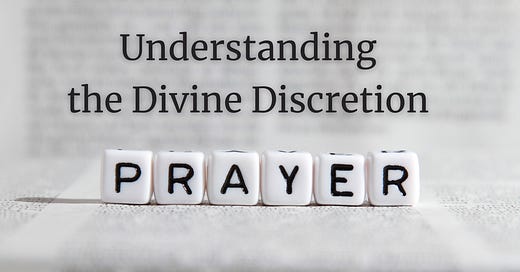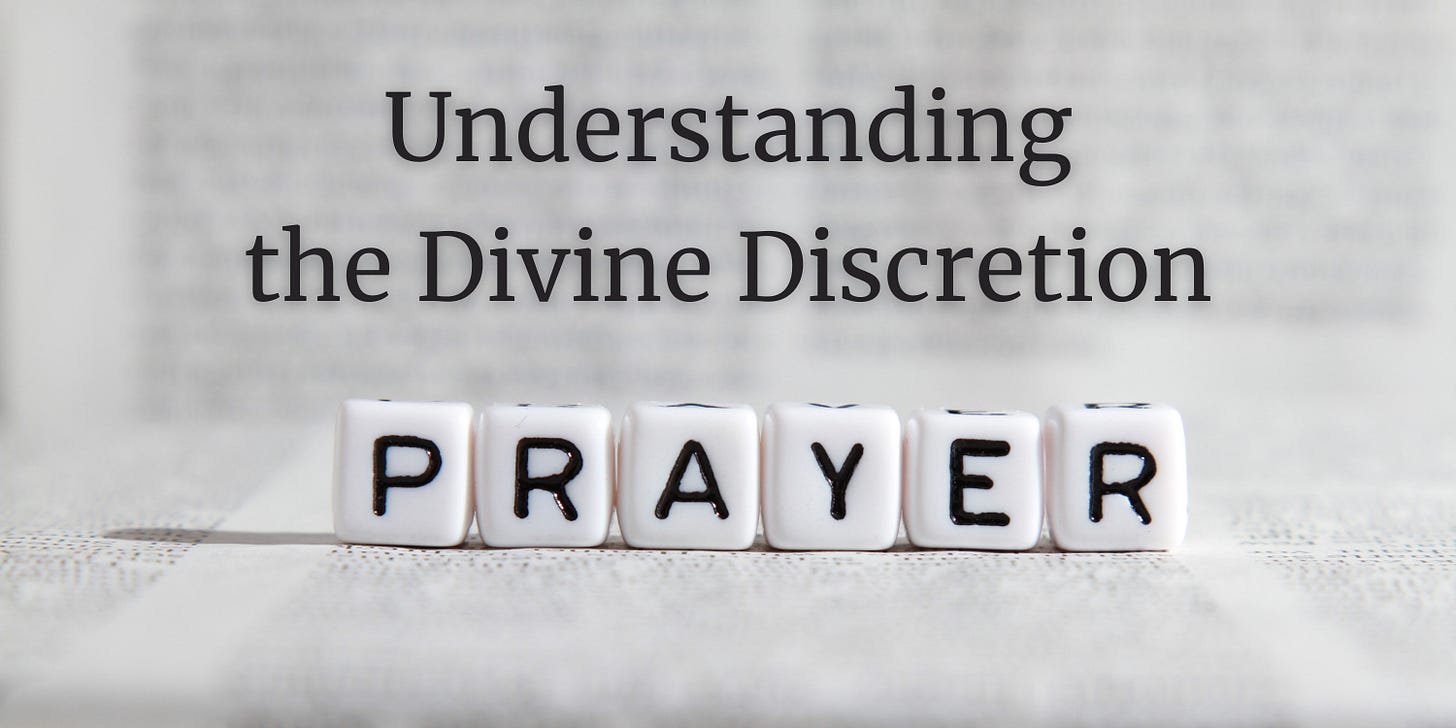Understanding the Divine Discretion: Insights from C.S. Lewis’ “Work and Prayer”
In a constantly changing, unpredictable, and complex world, prayer offers a unique and powerful source of comfort and guidance. It serves as a bridge connecting the mortal with the divine, allowing us
In his essay "Work and Prayer," first published in the Coventry Evening Telegraph on May 28, 1945, and later included in First and Second Things (1985), C. S. Lewis addresses skepticism surrounding prayer. He begins by acknowledging a common argument against it: that an all-wise, all-good God wouldn't need human advice on how to run the world. While some counter this by distinguishing between lower forms of prayer (asking for things) and higher forms (communion with God), Lewis does not fully agree with this distinction.
As a renowned Christian apologist, Lewis believed that prayer is a powerful tool that can significantly impact the world. However, he also recognized that its effects are not straightforward. Unlike human actions, which often have predictable outcomes, the results of prayer are not guaranteed in the same way.
In his enlightening essay "Work and Prayer," C. S. Lewis delves into the intricate nature of prayer, unveiling a profound aspect—the discretionary power of the divine in responding to human appeals. This concept emphasizes the importance of faith and trust as we seek to understand the true essence of prayer and our relationship with a higher power.
Lewis addresses a common skepticism: If a supreme being is all-knowing and benevolent, why would it require human prayers to decide a course of action?
This question leads to the heart of his argument about divine discretion. According to Lewis, the universe is not entirely preordained; instead, there is room for human influence through actions and prayers. This perspective suggests that free will and divine sovereignty can coexist, allowing individuals to play a meaningful role in shaping events.
Imagine the universe as a grand symphony composed by a master conductor who allows for improvisation within the score. In this space for improvisation, human prayers can impact the flow of the music, making prayer a significant and purposeful practice. Lewis posits that prayer is a higher form of causality, transcending the limitations of space and time. It is a means of communicating with the divine, seeking guidance and intervention in the world. However, this higher causality brings greater responsibility and uncertainty.
Herein lies the idea of divine discretion—the notion that the divine has the power to choose how and when to respond to our prayers. This is not a weakness but a strength of prayer. It is not a formulaic process guaranteeing specific outcomes but a dynamic and complex relationship between the individual and the divine. Prayer should not be seen as a way to manipulate outcomes but as a way to align our will with a higher will, participating in a greater plan that extends beyond our immediate understanding.
This discretion means that responses to our prayers may be immediate, delayed, or different from what we expect. It's a concept that challenges the modern mindset, often accustomed to instant gratification and tangible results. Lewis suggests that this divine discretion is not arbitrary but rooted in a comprehensive understanding of the greater good—an understanding that often surpasses human comprehension.
Embracing this aspect of prayer requires humility and trust. It involves acknowledging our limited perspective and recognizing that the ultimate good may not align with our immediate desires. Lewis encourages us to view prayer not as a tool to enforce our will but as an act of openness to a higher, more informed will. This shift transforms prayer from a transactional request into a transformative experience.
This perspective enriches our understanding of the role of prayer in our lives. It's not merely a list of wishes but a conversation and a relationship. It's about aligning ourselves with a higher purpose, understanding deeper truths, and trusting in decisions that shape the course of events in ways we might not foresee. This trust doesn't diminish the importance of prayer; instead, it elevates it, making it a profound act of participation in a larger, more intricate tapestry of existence.
Lewis's insights offer a fresh lens through which to view the practice of prayer, making it relevant and intriguing even to those outside the Christian faith. By framing prayer as a universal dialogue between the finite and the infinite, he opens the door to a broader audience, inviting everyone to explore the transformative power of seeking connection with something greater than ourselves.
Insights from C.S. Lewis
C. S. Lewis argues that dismissing the lower form of prayer ignores the historical tradition of Christian prayer, including the Lord’s Prayer, which encompasses requests for daily needs and other desires. He suggests that ruling out request-based prayer is problematic, as it dismisses a significant aspect of historical and traditional Christian practice.
C. S. Lewis proposes reconsidering the nature of prayer
He challenges the view that if something is good, God will make it happen regardless of prayer, and if it’s not, He won’t. According to Lewis, this argument could also apply to any action, not just prayer. He uses examples like washing hands or asking for salt to illustrate that just as our actions have effects, so might our prayers.
C. S. Lewis further explains that God has not predetermined every aspect of history
He likens the universe to a play where the general story is set by the author (God), but minor details are left to the actors (humans) to improvise. This improvisation includes both physical actions and prayers. He cites Pascal, who said that God instituted prayer to give his creatures the dignity of causality.
C. S. Lewis distinguishes between the causality exercised through work and that through prayer
Work has a direct, guaranteed impact, whereas prayer has a discretionary effect, dependent on God’s will. This distinction, Lewis argues, is why prayer is a stronger form of causality, as it can transcend space and time.
C. S. Lewis suggests that while fixed rules govern some actions, others, potentially more dangerous, require personal requests to God.
He posits that prayer is a powerful tool, and its effectiveness is contingent on God's discretion, making it a critical aspect of the human relationship with the divine.
Work and Prayer: Five Takeaways from C.S. Lewis
Skepticism Towards Prayer
C. S. Lewis addresses a common skepticism about prayer: if God is all-knowing and all-good, He should not need human input on managing the world, casting doubt on the efficacy and necessity of prayer.
Distinction Between Types of Prayer
C. S. Lewis differentiates between two types of prayer: the lower form, which involves asking for specific outcomes, and the higher form, which is about communion with God. C. S. Lewis critiques the view that dismisses the lower form as inferior or irrelevant.
Historical and Traditional Relevance of Prayer
C. S. Lewis argues that dismissing request-based prayer undermines the historical tradition of Christian prayer, including the Lord’s Prayer, which includes petitions for daily needs, the recovery of the sick, and other worldly concerns.
Human Role in God’s Plan
C. S. Lewis suggests that God has allowed humans to play a role in the unfolding of events in the world. This role is likened to actors in a play who have the freedom to improvise certain details, implying that both prayer and action can influence outcomes within God’s broader plan.
Prayer as a Form of Causality
C. S. Lewis proposes that prayer is a unique and powerful form of causality, different from physical action. While physical actions have predictable effects, prayer operates under God’s discretionary power, making it potentially more powerful as it can transcend space and time, but also more uncertain in its outcomes.
Final Thoughts
C.S. Lewis’ exploration of God’s discretionary power in prayer offers a refreshing and profound perspective. It invites us to embrace the mystery and potency of prayer, understanding that its true power lies not in compelling God to act on our whims but in allowing us to participate in His grander plan. In this light, prayer becomes a journey of faith, trust, and deeper understanding, where the answers we seek may not always be the answers we receive, yet they are always within the perfect wisdom of the divine.
References and Resources:
[1] C. S. Lewis and W. Hooper, First and second things: essays on theology and ethics. Collins, 1985.
[2] C. S. Lewis, Essay collection and other short pieces. London: HarperCollins, 2000. [Hardcover or audiobook]. Available: https://a.co/d/5hvvz8n
[3] C. S. Lewis — Work and Prayer. [Online Video]. Available: https://www.youtube.com/watch?v=Ojy2zFuqRB4



